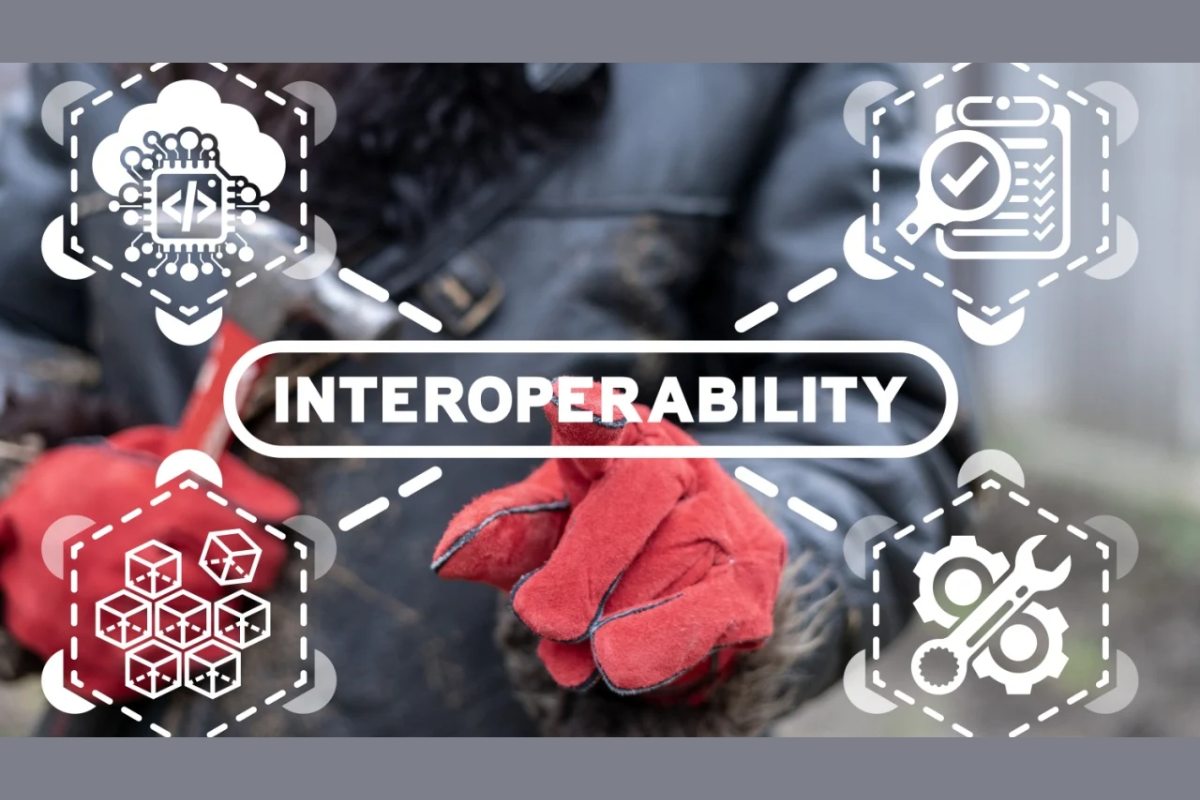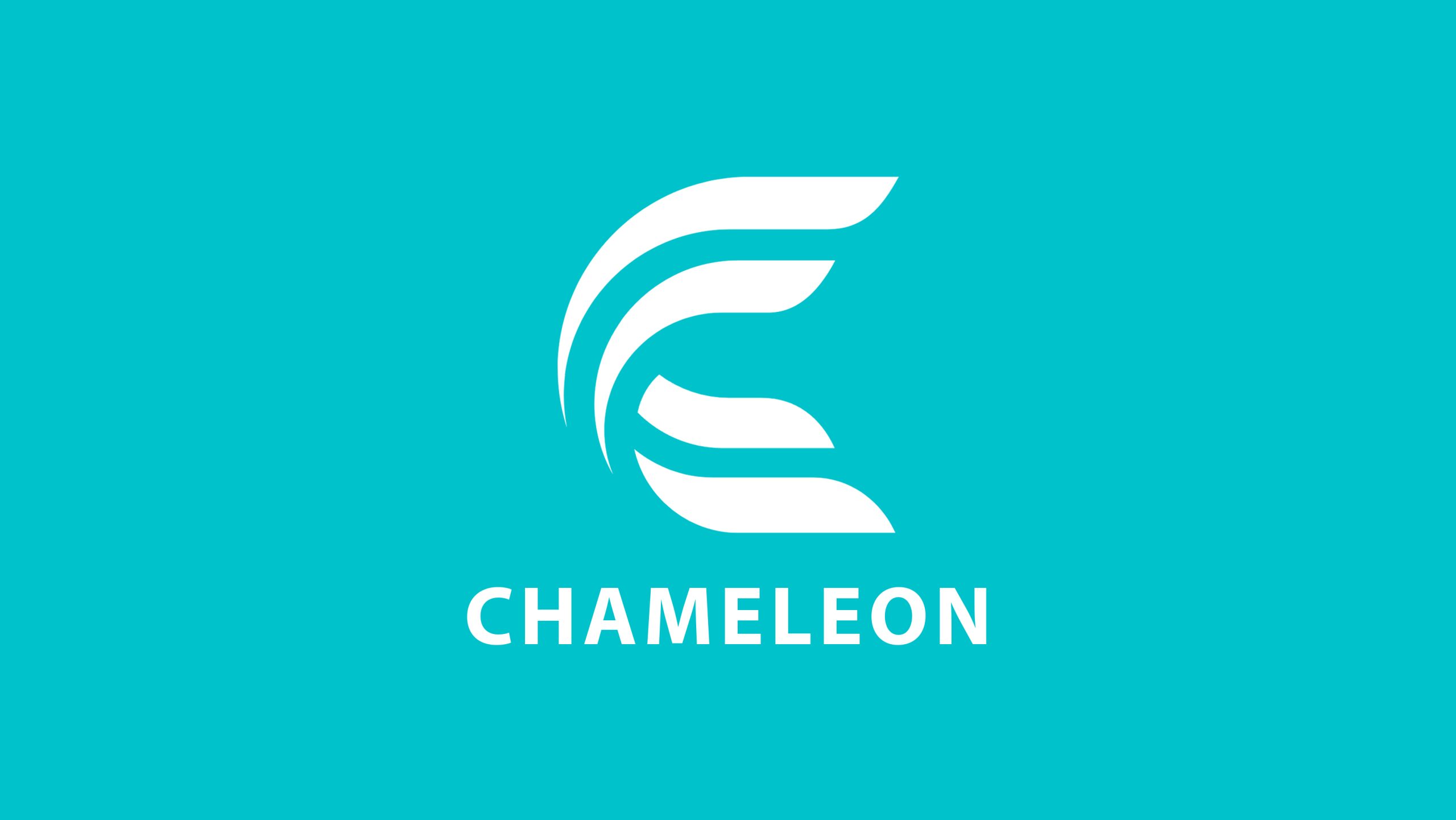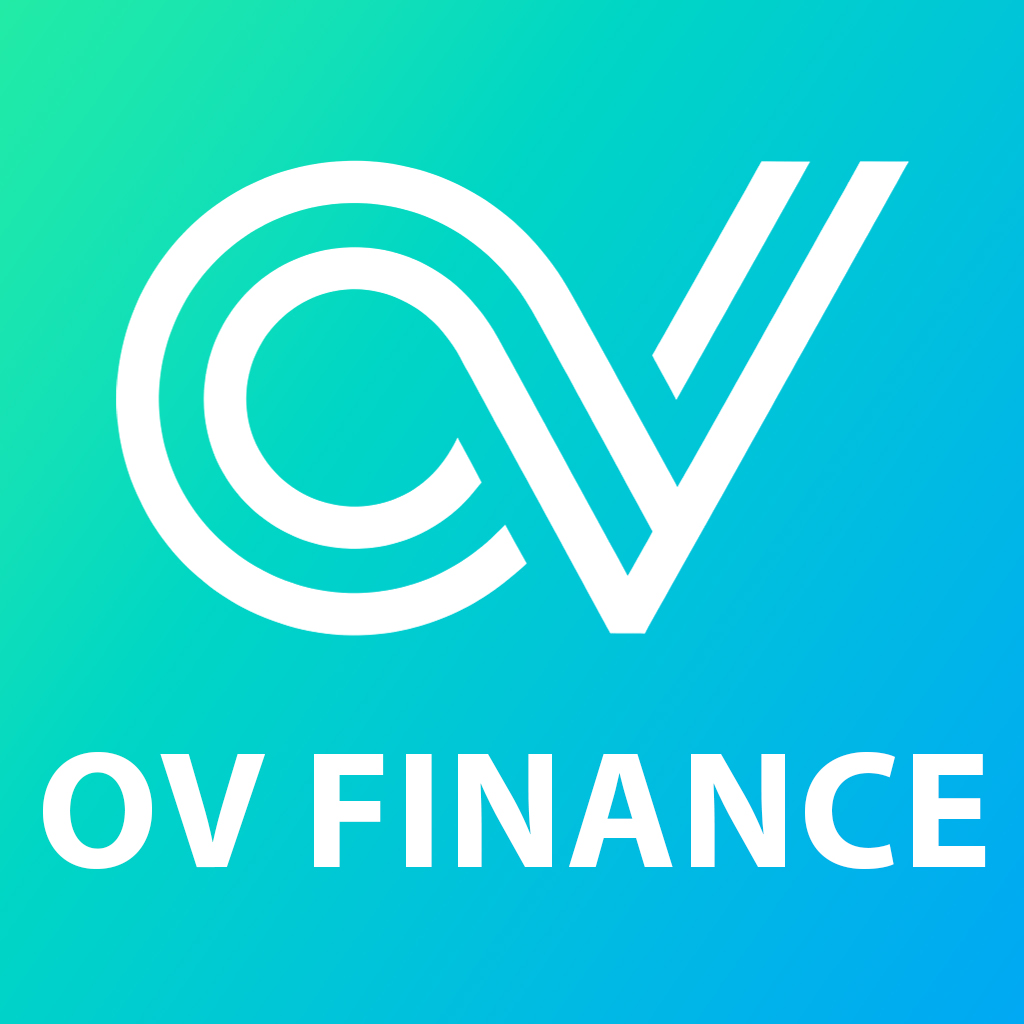Blockchain
Standardization of Blockchain Data Format Enhances Interoperability Between Chains – Nick Yushkevich


According to Nick Yushkevich, standardization of blockchain data formats is crucial as it enhances the interoperability of distinct protocols and fosters broader adoption of the technology. Yushkevich, the director of product at blockchain infrastructure provider Quicknode, added that such standardization helps to improve communication between systems.
Unlocking the Full Potential of Blockchain Data
Yushkevich stated that for users, having standardized blockchain data formats allows interaction with the technology “without needing to understand the intricacies of each platform’s data format.” To back his assertions on the standardization of blockchain data format, the Quicknode director revealed that several organizations, including the International Organization for Standardization (ISO), are already establishing standards for the industry.
Looking to the future of blockchain data management, Yushkevich emphasized the importance of developing what he termed intuitive systems and intricate toolkits to navigate the ever-evolving blockchain space. He argued that each would reinforce the other to “unlock the full potential of blockchain data in a secure and accessible manner.”
Meanwhile, in written responses provided to Bitcoin.com News, Yushkevich also discussed how Streams, Quicknode’s recently launched tool, is addressing the challenges of streaming and processing blockchain data. The Quicknode director’s answers to the questions sent are provided below.
Bitcoin.com News (BCN): The complexity of blockchain data formats can be a barrier to effective data management. How important is standardization in this context, and what progress is being made towards it?
Nick Yushkevich (NY): Standardization in the context of blockchain data formats is crucial for several reasons. It facilitates interoperability between different blockchain systems, improves data quality and consistency, enhances the efficiency of data management practices, and fosters broader adoption of blockchain technology by reducing complexity for developers, businesses, and end-users.
Standardization efforts aim to create common frameworks and guidelines that can be adopted across various blockchain platforms, making it easier for systems to communicate and for users to interact with blockchain technology without needing to understand the intricacies of each platform’s data format.
Node APIs, in particular, are standardized, ensuring no lock-in.
Several organizations and consortia are working towards standardizing blockchain technology and its data formats, such as the International Organization for Standardization (ISO), which has a technical committee (ITC 307) dedicated to blockchain and distributed ledger technologies. They work on standardizing aspects such as terminology, privacy, security, and smart contracts.
The Enterprise Ethereum Alliance (EEA) also focuses on developing open blockchain specifications that drive harmonization and interoperability for businesses and consumers.
BCN: Given the intricate challenges that extract, transform and load (ETL) systems encounter in blockchain data management, what key enhancements can be considered to elevate the efficacy of these systems?
NY: Streams is a data streaming service. It provides your systems with a continuous, real-time stream of blockchain data and includes blocks with transactions, receipts, logs, and more.
Streams also offer a unique reverse RPC approach, ensuring guaranteed data delivery. It has a user-friendly dashboard for managing streams, viewing basic statistics, controlling errors, and more. Additionally, Streams includes a transformation layer, allowing you to tailor the data to your specific needs before it’s delivered.
BCN: Quicknode’s recently launched Streams is reportedly getting quite some attention for its approach to blockchain data management. How exactly does it address the challenges of streaming and processing blockchain data?
NY: Streams redefines how users interact with and utilize blockchain data, unlocking several possibilities currently out of reach with traditional JSON-RPC interfaces.
At the heart of the approach for Stream is what we call a “reverse RPC approach.”
In traditional JSON-RPC, the client makes a request to the server and waits for a response. This approach is request-driven, meaning the client initiates the interaction. However, this model can be inefficient and resource-intensive in the context of streaming data, requiring constant polling to check for new data.
The reverse RPC approach, on the other hand, flips this model on its head. Instead of the client polling the server for data, the server pushes data to the client as it becomes available. This approach is event-driven, meaning the server initiates the interaction when there is new data to send. This model is much more efficient for streaming data, eliminating the need for constant polling and allowing for real-time data delivery.
In the context of Quickstream, this reverse RPC approach means that instead of users making requests to Quicknode for data, Quicknode pushes the data to the users as it becomes available. This approach allows for real-time, efficient, and reliable data delivery, making it ideal for streaming blockchain data.
BCN: As we approach the next frontier in blockchain data management, do you envision a future where data becomes more intuitively comprehensible by systems, or do you anticipate a need for increasingly intricate and intelligent toolkits?
NY: As we move forward in the world of blockchain data management, it is important to develop intuitive systems and intricate toolkits to navigate the evolving terrain. The key lies in refining our approach to ETL processes to ensure that data is not only accessible but also meaningful and actionable.
Integrating blockchain technology with traditional sectors emphasizes the need for analytics tools that can dissect complex datasets and align them with established industry norms. This makes blockchain data more relevant and useful across diverse fields.
Security is a non-negotiable aspect of this journey. As we enhance system intelligence and data accessibility, safeguarding this information becomes paramount. Therefore, we need toolkits built with robust security measures from the ground up.
Lastly, accessibility is crucial to our vision. We aim to create solutions that transcend technical barriers and offer user-friendly interfaces that democratize blockchain data use, ensuring that its benefits extend beyond niche experts to a broader audience.
In essence, the future calls for a harmonious blend of intuitive and advanced toolkits, each reinforcing the other to unlock the full potential of blockchain data in a secure and accessible manner.
Source: news.bitcoin.com
The post Standardization of Blockchain Data Format Enhances Interoperability Between Chains – Nick Yushkevich appeared first on HIPTHER Alerts.
Blockchain
Blocks & Headlines: Today in Blockchain – April 25, 2025 | BitNile, Dutch Blockchain Week, Citigroup, Philippine Blockchain Week, D.O.G.E Foundation

Blockchain’s metamorphosis from niche ledger technology to the backbone of Web3 has never been more evident. Today, we cover five stories that illustrate the evolving ecosystem: a gaming platform issuing its own token on Solana; Europe’s marquee Web3 summit; a major bank forecasting a “ChatGPT moment” for blockchain; a Southeast Asian conference aimed at busting crypto myths; and a foundation rebuilding blockchain from the ground up to solve scalability. Each development—whether product launch, industry gathering, macro forecast, educational initiative, or infrastructure innovation—offers a window into the trends shaping decentralized finance, NFTs, DeFi, and beyond.
1. BitNile.com to Launch Nile Coin on Solana
News Summary
Hyperscale Data’s subsidiary BitNile.com will introduce the Nile Coin on Solana starting May 1, 2025. The U.S.–based social gaming site chose Solana for its high throughput and low fees, aiming to enhance in-game economies, reward engagement, and deliver seamless micro-transactions. Details on tokenomics and governance are forthcoming, but management touts Nile Coin as a cornerstone of future gaming experiences.
Source: CoinTrus
Analysis & Commentary
Launching a proprietary token underscores two converging trends: the gamification of finance and finance-ification of gaming. By minting Nile Coin, BitNile.com taps into DeFi mechanics—staking, liquidity pools, NFT rewards—while leveraging Solana’s scalability. Strategically, BitNile.com positions itself for partnerships with NFT marketplaces and DeFi protocols, potentially opening secondary markets for in-game assets and generating new revenue streams beyond ad sales or subscription fees.
2. Dutch Blockchain Week 2025 Gears Up in Amsterdam
News Summary
From May 19–25, Amsterdam will host the sixth annual Dutch Blockchain Week, culminating in the two-day summit (May 21–22) at De Meervaart. Tier 1 exchanges (Bitvavo, Kraken, Coinbase), Web3 pioneers (WOW.ai, Blockrise), regulators (European Commission, De Nederlandsche Bank), and industry partners (Mastercard, Deloitte) will convene. Side events range from AI-powered hackathons tackling compliance to padel networking meetups—underscoring the event’s blend of technology, policy, and community.
Source: Dutch Blockchain Week
Analysis & Commentary
Dutch Blockchain Week typifies the maturation of blockchain conferences into multidisciplinary forums. Beyond token talk and yield farming, panels on regulation, institutional adoption, and security reflect Web3’s integration into mainstream finance. Anticipate announcements on CBDC pilots, DeFi compliance frameworks, and cross-chain interoperability projects that may emerge from the Block & Order Hackathon.
3. Citigroup Predicts Blockchain’s “ChatGPT Moment”
News Summary
In an April 23 report, Citigroup analysts argue that 2025 could be blockchain’s “ChatGPT moment,” driven by regulatory clarity around stablecoins and integration with traditional financial systems. They forecast stablecoin market capitalization ballooning to $1.6 trillion (base case) or as much as $3.7 trillion (bull case) by 2030—anchored by dollar-denominated issuers and collateralized with U.S. Treasuries. Regulatory frameworks like the GENIUS Act could catalyze adoption among banks and fintechs.
Source: Cointelegraph
Analysis & Commentary
Drawing parallels to generative AI’s explosive growth, Citigroup envisions a tipping point where blockchain moves from experimental to essential infrastructure. Successful integration will hinge on robust compliance tools, auditability, and clear governance models. Enterprise blockchain vendors should prepare for surging demand in tokenized payments, on-chain settlements, and embedded DeFi rails within legacy systems.
4. Philippine Blockchain Week 2025 Debunks Crypto Myths
News Summary
Scheduled for June 10–11 at SMX Convention Center Manila, Philippine Blockchain Week (PBW) 2025 will tackle misinformation and spotlight real-world use cases. Highlights include “Crypto, Unpacked” sessions demystifying the technology; “Smart Regulation” panels uniting policymakers and innovators; and “Blockchain for Impact” showcases on remittances, disaster relief, and digital identity. Founding President Donald Lim emphasizes government support and public–private collaboration to spur inclusive growth.
Source: UseTheBitcoin
Analysis & Commentary
PBW exemplifies how emerging markets leverage education to accelerate Web3 adoption responsibly. By engaging regulators early, PBW can shape balanced frameworks that encourage innovation while protecting consumers—an instructive model for markets wrestling with both hype and skepticism.
5. D.O.G.E Foundation Launches New Blockchain, Opens Seed Round
News Summary
The D.O.G.E Foundation announced a ground-up blockchain rebuild designed to solve the scalability and reliability challenges plaguing existing networks. This modular architecture separates validation from execution to enable parallel transaction processing—targeting real-time gaming, DeFi under high load, and AI-driven applications. A seed funding round is now open to investors who share the vision of a performant, decentralized infrastructure.
Source: D.O.G.E Altcoin GlobeNewswire
Analysis & Commentary
As layer-1 congestion and high gas fees persist, new entrants must justify a “why now” with clear architectural advantages. If the D.O.G.E blockchain delivers real-world throughput and maintains decentralization, it could spur a renaissance of high-performance DeFi protocols and NFT platforms hungry for cost-effective base layers.
Conclusion & Key Takeaways
-
Tokenization of Entertainment: BitNile’s Nile Coin on Solana highlights blockchain’s expansion into gaming economies and NFT reward systems.
-
Convergence of Tech, Policy & Community: Dutch Blockchain Week showcases Web3’s evolution into an ecosystem engaging regulators, enterprises, and developers under one roof.
-
Mainstream Inflection Point: Citigroup’s “ChatGPT moment” thesis suggests blockchain is poised for exponential adoption given regulatory support.
-
Education as Catalyst: Philippine Blockchain Week’s myth-busting curriculum underscores the importance of public–private dialogue in emerging markets.
-
Infrastructure Innovation: The D.O.G.E Foundation’s modular, high-throughput chain exemplifies the next wave of layer-1 networks addressing real-time, real-world use cases.
Today’s stories convey that blockchain’s next chapter will be written through strategic token launches, global convenings, regulatory clarity, educational outreach, and radical infrastructure redesign. By tracking these threads, industry participants can anticipate opportunities in DeFi, NFTs, Web3 games, and enterprise integration. Stay tuned for tomorrow’s Blocks & Headlines, where we’ll continue to decode the innovations shaping decentralized finance.
The post Blocks & Headlines: Today in Blockchain – April 25, 2025 | BitNile, Dutch Blockchain Week, Citigroup, Philippine Blockchain Week, D.O.G.E Foundation appeared first on News, Events, Advertising Options.
Blockchain
Chameleon Finance Launches Green Finance Initiative to Advance Sustainable Digital Asset Infrastructure
Blockchain
Ov Finance Upgrades Blockchain Infrastructure to Deliver Faster, Safer Digital Asset Trading
-

 Blockchain Press Releases7 days ago
Blockchain Press Releases7 days agoBybit’s CEO Meets with Vietnam’s Minister of Finance to Support Regulatory Sandbox and Strengthen Crypto Compliance
-
Blockchain4 days ago
Islamic finance Market to Reach $3.4 Trillion by 2027 in the short run and $7.7 Trillion by 2033 Globally, at 12.0% CAGR: Allied Market Research
-

 Blockchain3 days ago
Blockchain3 days agoBlocks & Headlines: Today in Blockchain – April 22, 2025 (Activity‑Weighted Consensus, Pectra Upgrade, Yoki Legacy, Verae–Evercycle, Earth Day)
-

 Blockchain2 days ago
Blockchain2 days agoBlocks & Headlines: Today in Blockchain – April 23, 2025 – EDPB, Binance, MicroCloud, Nile Coin, TruaBroker
-

 Blockchain Press Releases5 days ago
Blockchain Press Releases5 days agoIntroducing Clementine Bridge: Citrea Deploys First Complete BitVM Bridge Design on Testnet
-

 Blockchain1 day ago
Blockchain1 day agoBlocks & Headlines: Today in Blockchain – April 24, 2025 (Decrypt, CoinDesk, Cointelegraph, 80 Level, UNDP/BGA)
-

 Blockchain Press Releases3 days ago
Blockchain Press Releases3 days agoCompass Mining Partners with NiceHash to Provide Discounted Pool Fees to Customers
-

 Blockchain2 days ago
Blockchain2 days agoBlaqclouds Board Approves 30-Day Revenue Acceleration and Ecosystem Monetization Plan






























